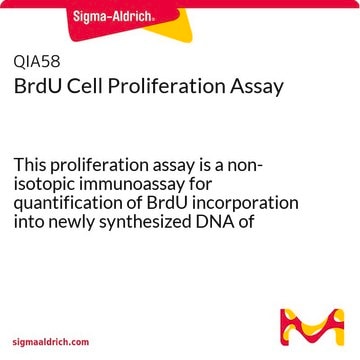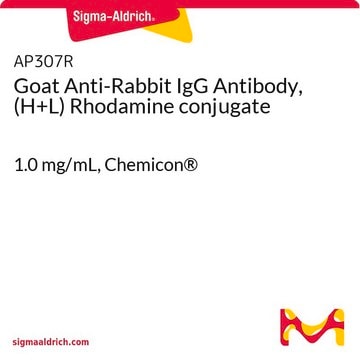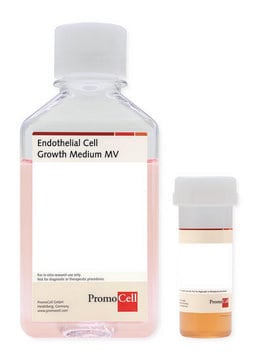C-12281
Human Pulmonary Microvascular Endothelial Cells (HPMEC)
500,000 cryopreserved cells
Synonyme(s) :
HPMEC cells
Se connecterpour consulter vos tarifs contractuels et ceux de votre entreprise/organisme
About This Item
Code UNSPSC :
41106514
Nomenclature NACRES :
NA.81
Produits recommandés
Source biologique
human lung
Conditionnement
pkg of 500,000 cells
Morphologie
( endothelial)
Technique(s)
cell culture | mammalian: suitable
Conditions d'expédition
dry ice
Température de stockage
−196°C
Description générale
Lot specific orders are not able to be placed through the web. Contact your local sales rep for more details.
Origine de la lignée cellulaire
Lungs
Application
Primary Human Pulmonary Microvascular Endothelial Cells (HPMEC) are isolated from the lung from a single donor and are provided in a cryopreserved format. Since lung tissue contains blood and lymphatic capillaries, HPMEC comprise Blood and Lymphatic Microvascular Endothelial Cells. The cells are routinely analyzed by immunofluorescent staining: they stain positive for CD31 and von Willebrand factor and negative for smooth muscle alpha-actin.The lung has a vast endothelial surface area, which is essential for the exchange of gases. HPMEC are most appropriate for studying human lung diseases.
Qualité
Rigid quality control tests are performed for each lot of Microvascular Endothelial Cells. They are tested for cell morphology and cell type specific markers, e.g. von Willebrand Factor (vWF), CD31 and Podoplanin using flow cytometric analyses. Growth performance is tested through multiple passages up to 15 population doublings (PD) without antibiotics or antimycotics. In addition, all cells have been tested forthe absence of HIV-1, HIV-2, HBV, HCV, HTLV-1, HTLV-2 and microbial contaminants (fungi, bacteria, and mycoplasma).
Avertissement
Although tested negative for HIV-1, HIV-2, HBV, HCV, HTLV-1 and HTLV-2, the cells – like all products of human origin – should be handled as potentially infectious. No test procedure can completely guarantee the absence of infectious agents.
Procédure de repiquage
Click here for more information.
Autres remarques
Recommended Plating Density: 10000 - 20000 cells per cm2Passage After Thawing: P2Tested Markers: von Willebrand Factor (vWF) positive, CD31 positive, Dil-Ac-LDL uptake positiveGuaranteed population doublings: >15
Produits recommandés
Recommended Primary Cell Culture Media:Link
Clause de non-responsabilité
Ce produit, destiné à la recherche scientifique, est soumis à une réglementation spécifique en France, y compris pour les activités d′importation et d′exportation (Article L 1211-1 alinéa 2 du Code de la Santé Publique). L′acheteur (c′est-à-dire l′utilisateur FINAL) est tenu d′obtenir une autorisation d′importation auprès du Ministère français de la Recherche, mentionné à l′article L1245-5-1 II du Code de la Santé Publique. En commandant ce produit, vous confirmez détenir l′autorisation d′importation requise.
Code de la classe de stockage
12 - Non Combustible Liquids
Classe de danger pour l'eau (WGK)
WGK 1
Point d'éclair (°F)
Not applicable
Point d'éclair (°C)
Not applicable
Certificats d'analyse (COA)
Recherchez un Certificats d'analyse (COA) en saisissant le numéro de lot du produit. Les numéros de lot figurent sur l'étiquette du produit après les mots "Lot" ou "Batch".
Déjà en possession de ce produit ?
Retrouvez la documentation relative aux produits que vous avez récemment achetés dans la Bibliothèque de documents.
Lili Li et al.
Pulmonary circulation, 10(4), 2045894020941352-2045894020941352 (2021-01-16)
While it is well established that the haemodynamic cause of hypoxic pulmonary hypertension is increased pulmonary vascular resistance, the molecular pathogenesis of the increased resistance remains incompletely understood. Macrophage migration inhibitory factor is a pleiotropic cytokine with endogenous tautomerase enzymatic
Notre équipe de scientifiques dispose d'une expérience dans tous les secteurs de la recherche, notamment en sciences de la vie, science des matériaux, synthèse chimique, chromatographie, analyse et dans de nombreux autres domaines..
Contacter notre Service technique





